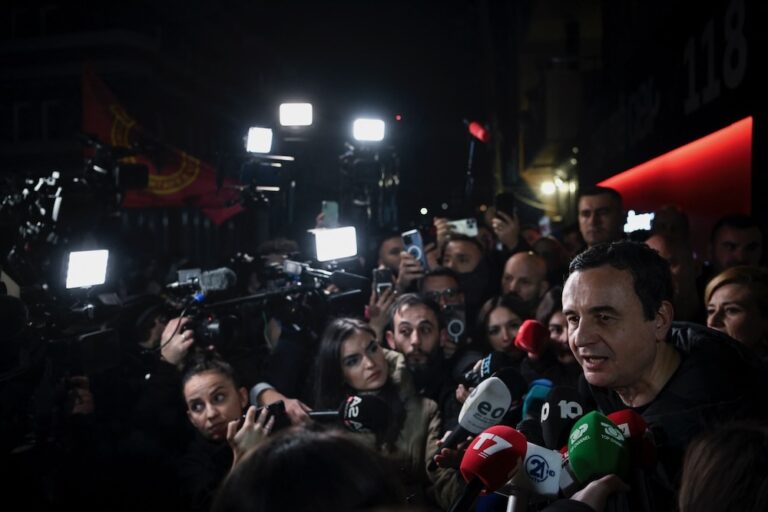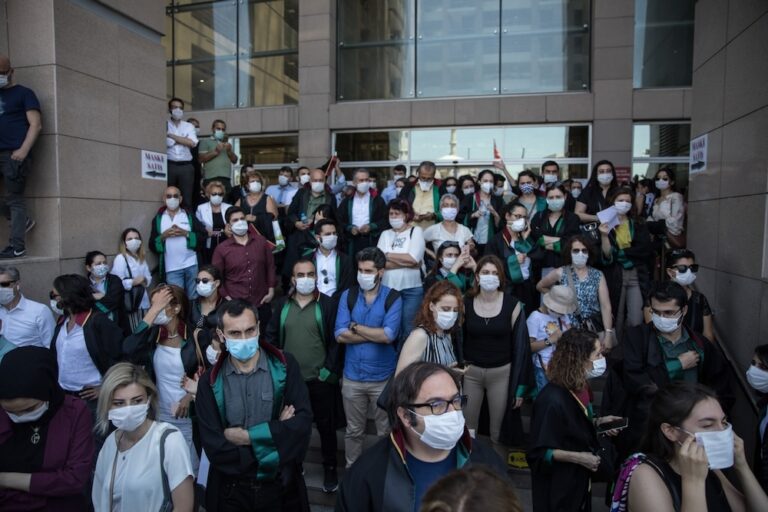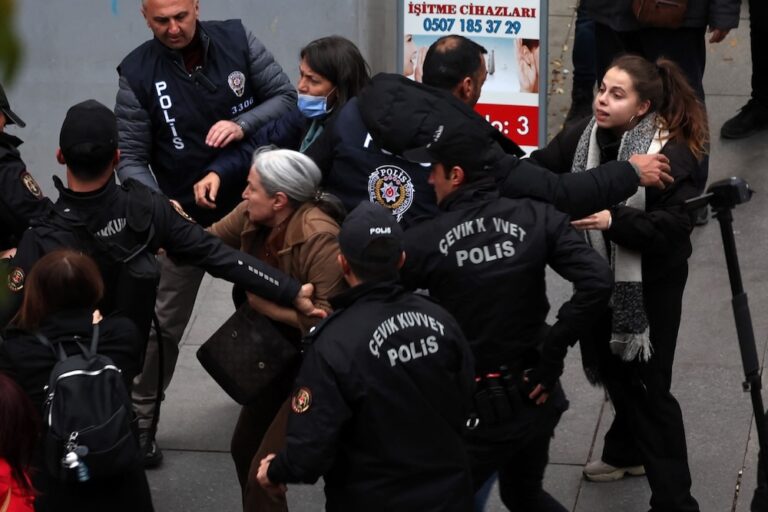Semra Pelek and Mustafa Dolu have been charged with "violating the secrecy of an investigation" and "attempting to influence a fair trial".
(BIANET/IFEX) – Former “Akşam” newspaper editor Semra Pelek and managing editor Mustafa Dolu are the latest journalists facing prison sentences over their reporting on the so-called “Ergenekon” investigation, an enquiry into the clandestine Ergenekon terrorist organization charged with attempting to trigger a military coup.
Public Prosecutor Pircan Barut Emre is seeking a conviction of both journalists under article 285 of the Turkish Criminal Code (TCK) related to “violating the secrecy of an investigation” and TCK article 288 on “attempting to influence a fair trial”. If convicted, the two could face up to eight years in prison.
The first hearing in the case is scheduled for 1 November at the Bakırköy 2nd Criminal Court of First Instance.
Retired Air Force Commander Gen. İbrahim Fırtına launched the lawsuit against Pelek and Dolu over a news item about Fırtına’s statement to the prosecutor in the scope of the Ergenekon investigation.
The charges against Pelek, currently an editor at Bianet, stem from an article she edited entitled “Questions to Fırtına from Aydın Doğan, Rahmi Koç and Akçakoca”, published on 5 January 2010.
The Ergenekon investigation was launched on 12 June 2007. Since then, journalists – including İsmail Saymaz, Serkan Ocak and Ertan Kılıç – have been tried on charges of “violating the secrecy of an investigation” or “attempting to influence a fair trial” over their reporting on the case.
The president of the Contemporary Journalists Association (ÇGD), Ahmet Abakay, denounced the trials as “illegal”.
“I find these kinds of trials contrary to universal press principles. There is nothing left that has not been said already regarding the allegations related to the Ergenekon organization. The Prime Minister talked, he became the prosecutor, the main opposition became the lawyer (. . .) The politicians did not become the subject of investigations into influencing a trial or violating an investigation, but journalists are taken to court for publishing just what these politicians said,” Abakay argued.
Abakay emphasized that he did not agree with the principle of the secrecy of information. “It is the duty of a journalist to reveal hidden things. This is investigative journalism. There is no secrecy where two people are together, it will definitely come to light. One example is the Watergate affair which overthrew the US government and it was the truth. The public was informed.”
“If we care about the democratic world and if we want to be a democratic country, these trials have to be dropped,” Abakay added.


